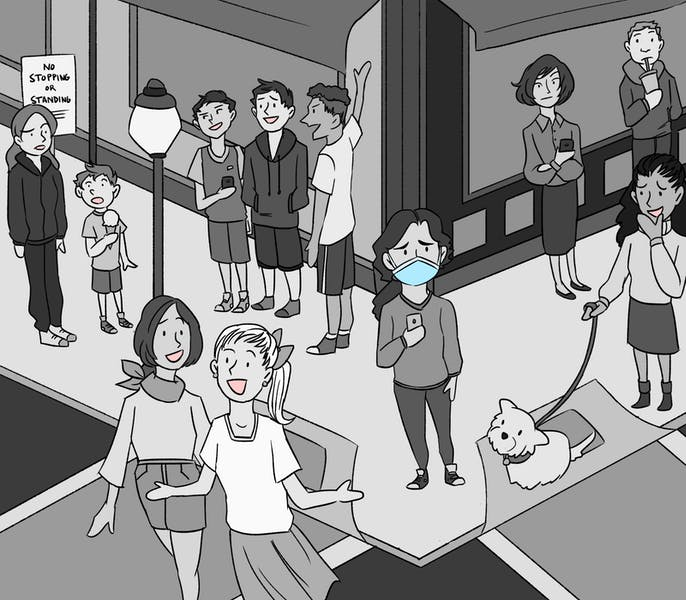
https://www.theatlantic.com/ideas/archive/2020/07/role-cognitive-dissonance-pandemic/614074/
The problem we're seeing across both camps of the mask debate is the assumption that there is such a thing as total certainty about various hypotheses.
The reality is a range of degrees of tentativeness.
At the extremes are things where you are as close to 100% certain that something is true or false as you can be with the midpoint being where it's a complete tossup.
The goal of scientific inquiry in every discipline is to move things out to the more certain point (usually in fact to the 'certainly not true' one).
The science of things like the prophylactic effects of universal mask-wearing is one of those things where there's still a reasonable probability on either side. So I think it is wrong to say that denial of a policy in that kind of area is per se evidence of cognitive dissonance because the certainty isn't as strong as they think.
However, in this case as in most, you have to go not on certainty but on the balance of probability and also on comparative costs.
The balance of probability is in favour of widespread mask wearing, certainly in confined areas with poor air circulation.
The cost of doing this to the individual is minimal.
The benefits may not exist but the balance of probability is that they will. If they do, the collective benefit will be considerable because it will make a seriously bad outcome less likely. So the balance is that you should do it. There's a fair chance it won't do any good but given the cost is minimal it makes sense to do it.
What is indicative of cognitive dissonance is taking positions on a range of questions that come from the less probable of the competing probabilities in every case.
That is classic straw-clutching.